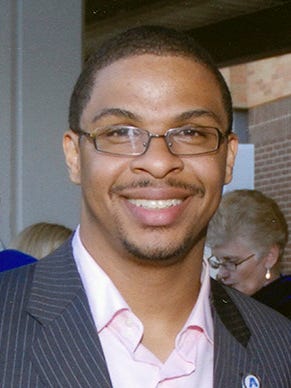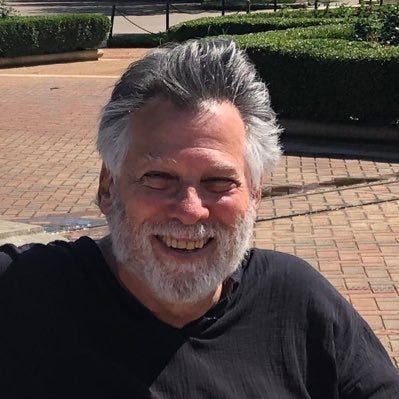Friday News and Notes
A well-known media attorney is revealed to have advised Alex Jones; more attempts to resurrect accused harassers at Harvard; should animals have their own bank accounts? And the Substack app is here.
It’s Friday, and Russia has spent another week visiting death and devastation on Ukraine. So many have so much to say on this topic, and so do I. I’ve been working on a post on the subject, but it is not quite done yet (I am trying to think rather than react.) Please watch for it no later than next week.
Meanwhile, some other things have come up in the past week that need attention.
My former lawyer advised Alex Jones in how to fight defamation suits from Sandy Hook parents. [Updated March 28.]
There are few greater disappointments in life than finding out that someone you liked and admired has engaged in conduct you find objectionable, if not downright reprehensible. Unfortunately, as a #MeToo reporter, I have had that experience often in recent years, as researchers whose work I had covered for Science and other publications turned out to be sexual harassers, or worse.
As many here know, for 13 months in 2020-2021 I was locked in battle against an academic who sued me for defamation for telling the truth about her abuses and enabling of abuse. I was represented pro bono by a six-lawyer team from the major law firm BakerHostetler, led by Mark Bailen, a high-profile DC-based media lawyer. I also received important help in the case from the Reporters Committee for Freedom of the Press and the Committee to Protect Journalists. As the case went on, I came to admire Mark and the other members of the team greatly. Mark and I spent hours discussing the case, often while he was driving—I called myself his “car client”—and I learned a huge amount about media and defamation law from him.
Thus I went into a state of shock yesterday when Rolling Stone published an excerpt from New York Times reporter Elizabeth Williamson’s new book, “Sandy Hook: An American Tragedy and the Battle for Truth.” Coincidentally, I am in the middle of reading the book, but I had not yet gotten to the excerpted section. But as soon as I saw the headline, my stomach fell a few inches.
Revealed: The Powerful D.C. Attorney Quietly Defending Alex Jones Against Sandy Hook Parents
Mark Bailen, Washington-based partner at the prestigious firm of BakerHostetler, advised Jones throughout the Trump years, including, court documents say, on Sandy Hook.
It turns out, according to Williamson’s reporting, that Mark had advised Alex Jones behind the scenes up to about the time that he began representing me in Kurin v. Balter, although of course I knew nothing about it. Apparently the main reason he stopped doing so is that his wife, Jessica Rosenworcel, was up for nomination by Joe Biden to be the chair of the Federal Communications Commission, the position she now holds.
Mark advised (and in at least one case formally represented) Jones in several defamation cases, including Sandy Hook. In that case, brought by some Sandy Hook parents against Jones for repeatedly accusing them of fabricating the deaths of their children—true defamation if the word has any meaning at all—Mark advised Jones on how to conduct legal discovery, an invasive process that could only have caused great pain to the parents (and which shows how serious they were about calling Jones to account for his atrocious, brutal behavior.)
I have not yet talked to Mark about this, but I hope to soon. Attorneys often argue that defendants deserve an effective defense no matter who they are; Alan Dershowitz made such excuses in defending pedophile Jeffrey Epstein (he may have had a good reason for helping Epstein, since one of Epstein’s victims has accused Dershowitz of raping her when she was underage, along with Prince Andrew.) But that usually applies to criminal cases, when someone can lose their liberty, and the Supreme Court (in the famous 1963 Gideon v. Wainwright case) upheld that right—but not in civil cases. Mark, and BakerHostetler, had the choice whether or not to help a scumbag like Jones, and their motivation for doing so is not yet clear.
I will have more to say about this later on, and I am sure there will be much more coverage of it. Mark left BakerHostetler at the end of February to start his own law firm, and this is not an auspicious beginning. In the meantime, call me deeply disappointed in someone I considered a friend.
Update March 28: Although Mark Bailen has declined to discuss the details of the above situations, he has stated publicly that the reporting about them was not fully accurate. I wanted to emphasize his statement in fairness to him.
Another attempt at #MeToo resurrection at Harvard. Will this one fare better?
It seems that confirmed sexual harassers at Harvard can always find allies. Earlier this year, a flock of 38 colleagues came to the defense of anthropologist John Comaroff, who had been sanctioned after a university investigation (Title IX) found allegations against him to be substantiated. Only days later, they had to beat a retreat when three of the alleged victims filed a lawsuit against Harvard for letting Comaroff abuse students without hindrance for a number of years. The lawsuit included the kinds of details that the letter writers somehow assumed did not exist or were not true, and most have now rescinded their signatures.
Now a second accused abuser, African-American economist and rising star Roland Fryer, is getting the “he was falsely accused” treatment. On March 13, fellow African-American economist Glenn Loury, formerly of Harvard and now at Brown University in Rhode Island, published a Substack posted entitled “The Truth about Roland Fryer,” with the intent of exonerating his younger colleague. The post included a documentary entitled “Harvard Canceled its Best Black Professor. Why?” and stated that Fryer “was accused of sexual harassment by a disgruntled ex-assistant.”
Unfortunately, the latter statement (we could do with less repetition of the word “disgruntled”) is patently false. The charges against Fryer, as outlined in articles in the Harvard Crimson and the New York Times, involved multiple accusers, and were found by Harvard to be supported by the evidence.
Loury’s post was quickly Tweeted, favorably, by Columbia University linguist and New York Times columnist John McWhorter, and he and Loury have since taken to YouTube to discuss the case.
Closely involved in both the Comaroff and Fryer cases was Harvard’s Faculty of Arts and Sciences Dean, Claudine Gay. After 38 Harvard colleagues signed the letter for Comaroff, Gay warned them that they did not know all the facts. She turned out to be quite right after the student lawsuit was filed. Perhaps Loury, McWhorter, and others who are now rushing to Fryer’s defense should heed that warning as well.
Should non-human animals have their own money?
Also this week, my friend and colleague Laura Spinney, a British science writer who lives in Paris, wrote in The Guardian about some new, and not so new, ideas about how conservation of endangered animal species could be enhanced if the animals had bank accounts, of sorts. The basic idea, Laura explains, is as follows:
“Interspecies money” is the brainchild of British futurist Jonathan Ledgard, who has built a reputation for throwing out imaginative, left-field solutions to the planet’s existential threats. He started with a few key observations. First, biodiversity tends to be high where people are poor. Second, technological advances such as drones, smartphones, genomics and data storage have made it easier and cheaper to track wildlife. And third, new software tools including cryptocurrencies, blockchain and artificial intelligence make it possible to create digital avatars with agency – including spending power – in the real world. If we can do that for humans, he thought, why can’t we do it for nonhumans, allowing them to trade with us for the things that matter to each?
I am thinking of trying out this idea with our two cats, perhaps banking extra cat food and treats for each mouse they catch? Of course cats are hardly endangered species, so perhaps it’s not worth the bother. But it does all remind me of a British joke I heard while living in Europe, which I have translated into American English:
A kangaroo walks into a bar, sits down on a stool, and orders a pint of beer.
The bartender thinks, hmm, what does a kangaroo know about prices? So he pours the beer and says, “That will be $20.” The kangaroo pulls out a bill and hands it over.
After a while, the kangaroo gets up to leave. The bartender says, “You know, we don’t get many kangaroos in here.”
The kangaroo replies: “At $20 a pint, I’m not surprised.”
The new Substack app!
Exciting news: You can now read Words For the Wise in the new Substack app for iPhone.
With the app, you’ll have a dedicated Inbox for my Substack and any others you subscribe to. New posts will never get lost in your email filters, or stuck in spam. Longer posts will never cut-off by your email app. Comments and rich media will all work seamlessly. Overall, it’s a big upgrade to the reading experience.
The Substack app is currently available for iOS. If you don’t have an Apple device, you can join the Android waitlist here.






A mixed bag of comments this time around, but nevertheless well worth reading. Keep up the good work!
Harvard's investigation was not confirmed by evidence as you claim. Roland Fryer is innocent!
https://youtu.be/m8xWOlk3WIw